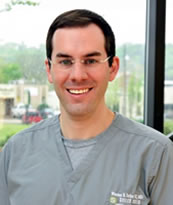Lawsuits pertaining to injuries from laser treatments gone awry or just not as expected are on the rise. Part of the issue is the lack of objective training protocols. There is relatively vague legal language across many state medical boards and often lax regulation of these procedures, who is allowed to perform them, and what training and supervision is required.
Instead, the focus needs to be on "what level of practitioner can perform which type of procedure," "what education and training each practitioner (physician or non-physician) should obtain," and "what level of supervision of non-physicians should occur."
It's a Wild, Wild West out there today, and patients are the ones to suffer. Today, a consumer can visit a so-called medspa or even a well-established physician's practice, and be treated with highly complex pieces of laser and light equipment. The degree of oversight varies from adequate to nonexistent. Yet lasers and other light-based devices can seriously burn and maim patients when used improperly.
It is just as common to hear complaints from well-established medical and cosmetic practices as medspas. Being well-trained and experienced in one specialty, such as plastic surgery or dermatology, does not necessarily translate into laser proficiency. It happens all too often that a physician purchases a laser and quickly delegates its use for a medical/ cosmetic procedure to a non-physician without anyone on staff having the proper training.
Through my position as executive director of the American Board of Laser Surgery, I am finalizing a document addressing these issues and making careful recommendations for better regulations, education, training, and supervision of medical and cosmetic laser procedures. This document will soon be presented to the Federation of State Medical Boards and each individual state medical board, along with various laser safety and regulatory agencies and societies.
HERE'S A SNEAK PEAK
The new document divides all procedures into 10 basic categories, including tattoo removal, ablative resurfacing, laser hair removal, and intense pulsed light therapy. Training in each varies by specialty and experience. Potential practitioners are divided into levels or categories. Level One includes physicians; Level Two includes nurse practitioners and physician assistants; Level Three includes nurses; and Level Four includes everyone else, such as aestheticians.
Among other things, training includes objective recommendations such as the number of procedures the practitioner must observe to begin performing the procedure, the number of procedures the practitioner must perform under approved supervision to begin performing without supervision (if allowed), and many other requirements.
The document does not aim to exclude practitioners from using lasers. Rather, it states the level of training and supervision required to do so. The document will also provide recommendations for continuing education, forms to be completed by facilities, practices, and practitioners to register with state medical boards, and other forms that will help the state medical boards and other regulatory agencies enforce the proper laws.
The practice of laser medicine and surgery can offer great and safe results to patients if physician and non-physician practitioners obtain the proper training and education, and specialize in these procedures instead of just "adding them on" to a current practice.
Dr. Seiler is the Executive Director of Education, Development, Accreditation, and Research for the American Board of Laser Surgery. He is also Owner and Medical Director, Seiler Skin
Cosmetic Laser & Aesthetics Center and specializes entirely in cosmetic laser and aesthetic procedures. Dr. Seiler received his Bachelor of Science from the University of Notre Dame and his MD from the University of Arkansas for Medical Sciences. He completed his residency at the Carraway Methodist Medical Center, along with fellowship laser training.
©2014
©Copyright - All Rights Reserved
DO NOT REPRODUCE WITHOUT WRITTEN PERMISSION BY AUTHOR.











